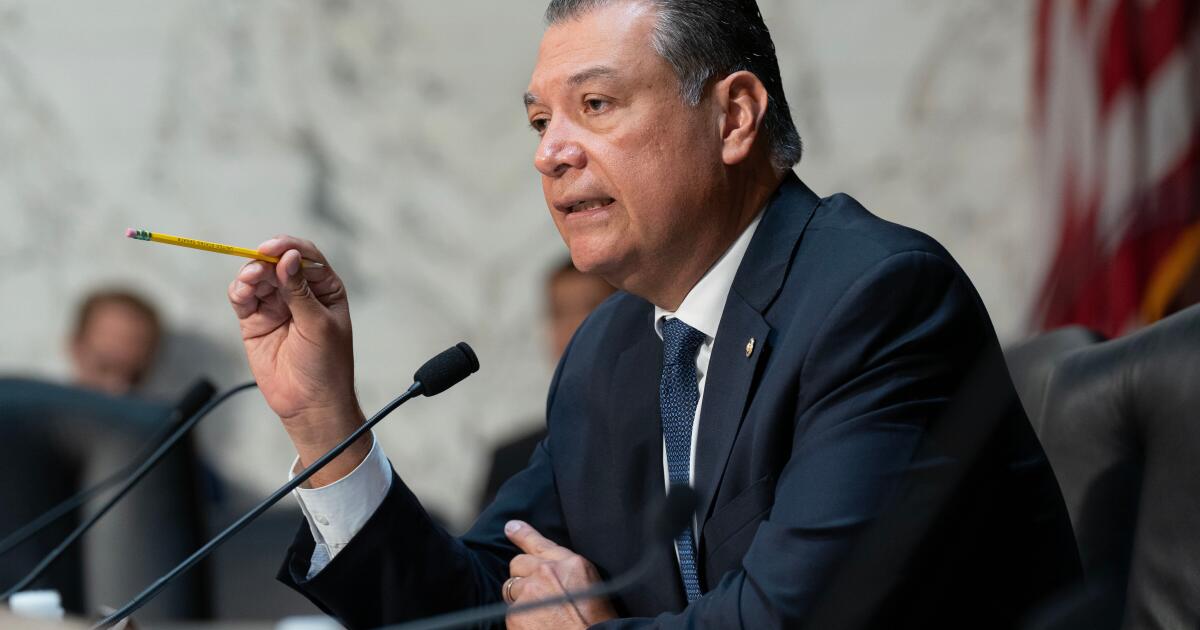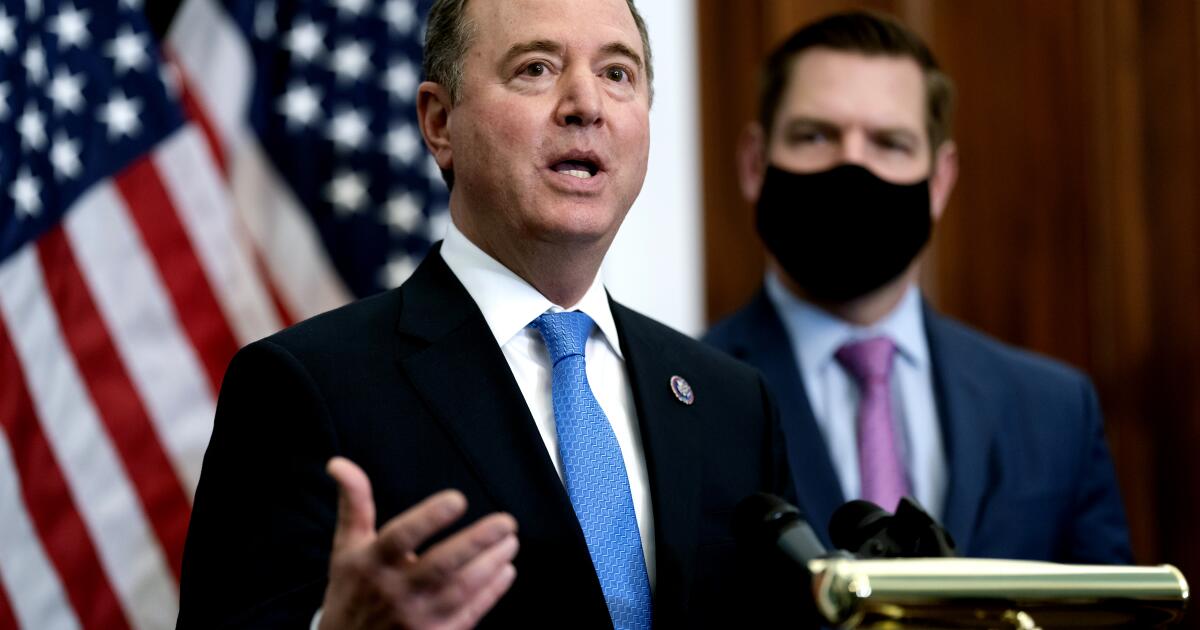California’s Congress members’ plans for Trump’s State of the Union address
Boycotts. Prebuttals. Rebuttals. Historic guests.
California members of the U.S. Senate and the House of Representatives’ approach to President Trump’s State of the Union address Tuesday night are as varied as their politics and their districts.
Before the speech, Sen. Adam Schiff described Trump as an out-of-control and corrupt president who has ignored pressing issues such as climate change in order to enrich himself and punish his political enemies, including by turning the U.S. Department of Justice and the rest of the federal government into a “personal fiefdom,” unbound by the law.
“From the birth of our nation, our founders were obsessed with preventing tyranny and the emergence of another king, another despot. They created checks and balances, separation of powers, an independent judiciary. They understood that the greatest threat to liberty wasn’t foreign invasion, it was the concentration of power in the hands of one person or faction,” Schiff said on the floor of the U.S. Senate. “This president has systematically dismantled these safeguards in his second term.”
Schiff is among the Democrats boycotting the speech. Other Californians include Reps. Robert Garcia (D-Long Beach), Sara Jacobs (D-San Diego), Sydney Kamlager-Dove (D-Los Angeles) and Julia Brownley (D-Westlake Village).
Sen. Alex Padilla, the son of immigrants who was tackled in Los Angeles last year when he attempted to ask Homeland Security Secretary Kristi Noem a question during the immigration raids, will deliver a Spanish-language response after Trump’s address on television and online.
California has the largest congressional delegation in the nation, so its elected officials frequently have an outsized presence in the nation’s capital. An especially memorable moment was when then-House Speaker Nancy Pelosi (D-San Francisco) ripped up a copy of Trump’s speech after the 2020 State of the Union address.
It’s unclear whether California elected officials plan anything as dramatic tonight. But their guests are notable.
Though Garcia is not attending the speech, his guest at the event is Annie Farmer, a woman who was abused at the age of 16 by sexual predators Jeffrey Epstein and Ghislaine Maxwell. Rep. Eric Swalwell (D-Dublin), who is attending, is bringing Teresa J. Helm — another Epstein abuse survivor.
Others plan to bring constituents from their districts — Rep. Ken Calvert (R-Corona) is bringing Ben Benoit, the Riverside County auditor-controller who is a longtime friend.
Pelosi’s guest is the Rev. Devon Jerome Crawford, senior pastor of historic Third Baptist Church of San Francisco. And some have surprise guests who will be unveiled later tonight.

